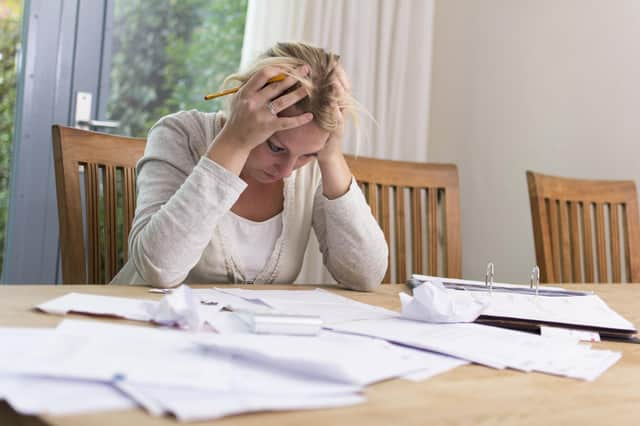Mental health: Here's what I learned after taking four weeks' stress leave – Laura Waddell


“That’s too long,” I said, when she suggested four weeks. “I really like my job, and I don’t want to be away for that length of time.” “A lot of patients react like that,” she replied, persuading me over the line with “at least see how you feel after two weeks”.
Okay. I could do that. With the support of my employers, I set triple out-of-offices (day job, lecturing work, and the misleadingly conceived ‘personal’ email, filled with dribs and drabs of other demands), deactivated my social media accounts for the duration, and prised myself away from work. Just one last email, and another, and then suddenly all my responsibilities receded.
Advertisement
Hide AdAdvertisement
Hide AdIt felt like the tide had gone out, and left me standing alone in a vast expanse of space. What was I meant to do with it all? What if I squandered it? Uncertain as to how a person is meant to spend stress leave, I googled it. I mostly found articles about navigating the subject with human resources or tribunals; good advice, but not what I was looking for.
At first I thought my focus would be establishing a good routine, working on all the peripheral things to good mental health. Getting to bed and waking up at a reasonable time (something my night owl nature resists), eating the daily recommended quantities of, or indeed, any vegetables (which falls by the wayside whenever I feel strained and reach instead for comfort food), and exercising more.
But I soon realised that a focus on just trying to shepherd my body through each day was part of the problem. The pandemic is a steamroller, flattening routine. I was tired of each day being a copy of the one before, and of whiling away time with good intentions.
So I moved on to rest. I deactivated the many wake-up alarms and incremental snoozes on my phone, and let myself fall into sleep whenever I felt like it. With no expectation of being woken to get up, sleep felt deeper and sweeter; restorative, as opposed to functional.
Then I looked for cultural enrichment. I booked things. I took day trips. I saw friends. I didn’t get far researching pottery classes, but my leave coincided with the reopening of galleries, which I walked around at my own pace. Publishers frequently send me books, but I put them to the side and bought myself a stack of new ones, choosing completely by fancy and impulse. I felt freed from expectations; to produce, to create content, to utilise experiences in some way rather than simply sitting with them.
The two weeks turned into four after all. I needed the break. I’ve written before about nursing a lifelong waxing and waning depression, and there is no wellness-based replacement for adequate healthcare services. But my time off made me realise what I had been missing. Leisure. The liberty of waking up each day and crafting it as I saw fit.
A message from the Editor:
Thank you for reading this article. We're more reliant on your support than ever as the shift in consumer habits brought about by coronavirus impacts our advertisers.
If you haven't already, please consider supporting our trusted, fact-checked journalism by taking out a digital subscription.
Comments
Want to join the conversation? Please or to comment on this article.
